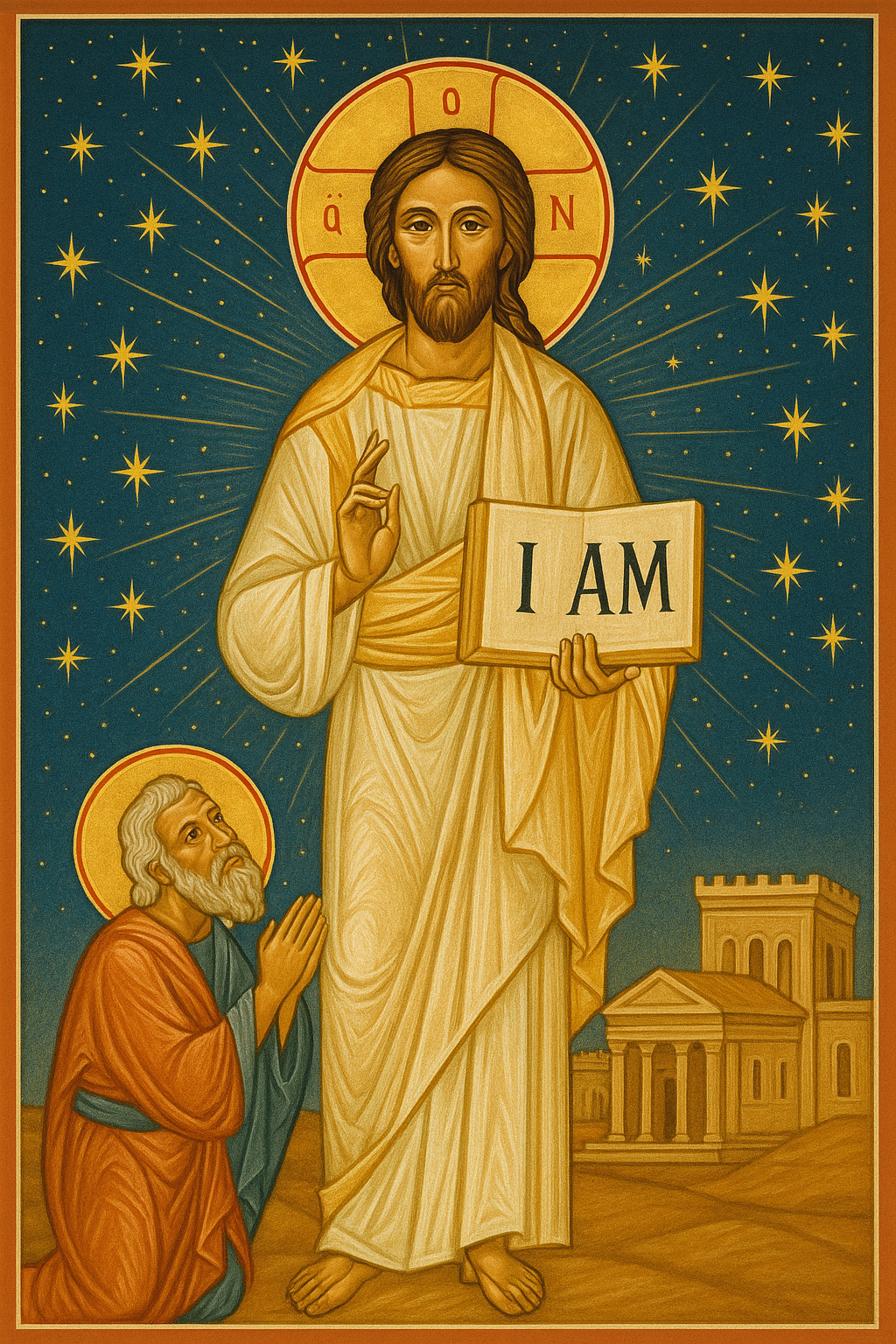Before Abraham Was, I AM
In the Name of the Father, and the Son, and the Holy Spirit, One God. Amen. May the blessing of the Father who calls us and His Only Begotten Son Jesus Christ who saves us, and the Holy Spirit who sanctifies and transforms us be with us all, that we may hear His word and bear fruit—thirty, sixty, and a hundredfold. Amen.
Gospel Meditation – John 8:58–59 (NKJV)
“Jesus said to them, ‘Most assuredly, I say to you, before Abraham was, I AM.’ Then they took up stones to throw at Him; but Jesus hid Himself and went out of the temple, going through the midst of them, and so passed by.”
Sermon:
Beloved brothers and sisters in Christ,
Today we stand before one of the most powerful and bold declarations our Lord Jesus Christ ever uttered.
He looks the Jews straight in the eye—those who pride themselves on being sons of Abraham—and He says plainly, “Before Abraham was, I AM.”
These words shook the ground beneath their feet. Not just because He said He existed before Abraham—no, that alone would have raised eyebrows. But Christ used the sacred name of God Himself: “I AM.”
This was the divine name revealed to Moses at the burning bush (Exodus 3:14), when God said, “I AM WHO I AM.”
St. Cyril of Alexandria explains this moment with great clarity. He writes:
“Christ does not merely say, ‘I was before Abraham,’ but rather, ‘I AM,’ to indicate that He exists beyond time—eternally begotten of the Father, without beginning, without end” (Commentary on John, PG 74.709). He is not bound by history, not measured by calendars. He is the One who always is.
This is no small claim. It is a direct proclamation of His divinity.
The people, however, couldn’t handle it. Their response? Stones. They picked up stones not because they misunderstood Him—but because they understood Him too well.
Christ had just lifted the veil. He who often spoke in parables, now speaks plainly.
As St. Cyril puts it, there are times when Christ conceals His meaning—so that those unworthy do not trample the truth underfoot. But when He sees that their hearts remain blind, even after long teaching, He strips away the mystery and speaks the truth openly.
“He had already spoken at length,” St. Cyril says, “but since they still could not perceive that He is eternal, greater than Abraham because He is God, He now declares plainly: ’Before Abraham was, I AM.’” (PG 74.708)
Let us pause here.
- Imagine the weight of these words falling upon our own ears.
- Christ is not just a wise teacher. He is not just a prophet.
- He is the eternal One.
- The One who existed before all things,
- The One through whom Abraham came into being.
- So then, what does this mean for you and me?
First, it means Christ is not part of your past or future only—He is your now.
As the One who always IS, He is with you this moment.
In your struggles, in your doubts, in your decisions—He is there.
That’s why we must never say: “Where is God in this situation?” He is present, even when unseen.
Second, it challenges our sense of time and priority.
The Jews claimed Abraham as their father, but they missed the One whom Abraham longed to see.
Let us not do the same. Let us not cling to appearances or to religious pride, while missing the living Christ who stands before us in the Eucharist, in the Scriptures, and in our neighbor.
Third, this moment reveals how people respond to truth.
Those who do not want to change—stone the truth.
But those who are pure in heart, as the Lord says, will see God (Matthew 5:8).
St. Cyril reminds us:
“He is always visible to those who love Him, but hides Himself from those who fight against Him. He departs, taking with Him all joy, and leaves them empty of His gifts.” (PG 74.710)
The Gospel says, “Jesus hid Himself.”
Not behind a wall. Not by running away.
But through the divine power of His Godhead. He passed through their midst—unharmed, untouched—because His hour had not yet come.
This is both mystery and warning.
Christ does not force Himself on anyone.
If we harden our hearts, He may pass by.
But to the one who calls out in humility, “Lord, I believe—help my unbelief,” He reveals Himself.
Saint Augustine once said:
“Do not seek to understand in order to believe, but believe so that you may understand” (Tractates on the Gospel of John, Tractate 29.6).
Faith opens our eyes to see the timeless Christ.
So what shall we do?
Practical Practice:
Make the sign of the cross slowly and prayerfully before any task and say in your heart:
“Before Abraham was, You are. Be with me now, O Lord.”
Let this be your anchor throughout the day.
Also, let us examine ourselves:
Do I live in the presence of Christ?
Do I treat Him as the “I AM”—the center of all things—or simply as a helper in times of need?
Let us not be like the crowd with stones in their hands.
Let us be like Mary of Bethany, who sat at His feet.
Like the man born blind, who said, “Lord, I believe,” and worshiped Him.
And like Abraham, who saw His day—and rejoiced.
Closing Blessing:
May the Lord bless us, transform our hearts and minds, that our homes may stand on the Rock, our hands serve in the harvest, and our hearts long for Heaven. Amen.

